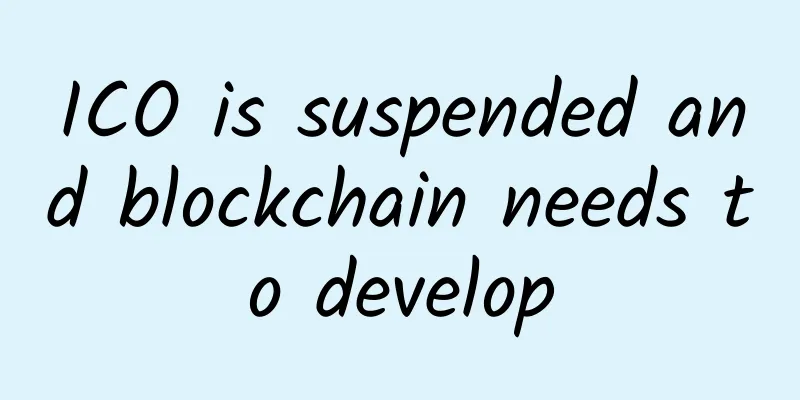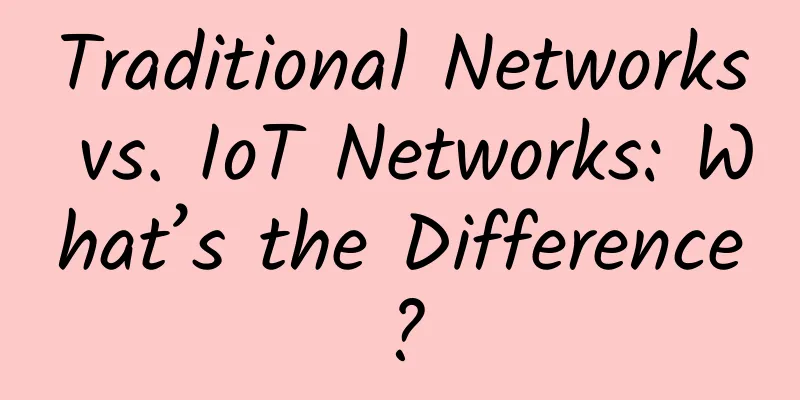ICO is suspended and blockchain needs to develop

|
ICO disguised as blockchain is like a glass of beer overflowing with foam. After the foam is punctured by regulatory policies, the main body under the bubble - blockchain technology and promotion, is what we should really pay attention to. ICOs are different from Bitcoin Sheng Songcheng, Counselor of the People's Bank of China and Executive Vice President of the China-Europe Lujiazui International Financial Research Institute, said: "It is normal that the rapid development of ICO has attracted the attention of regulators. From the perspective of traditional law, ICO is suspected of crowdfunding and raising capital. It is very risky to allow it to develop without supervision. A large number of projects that have no future or are even scams have not only made investors bear huge risks, but also caused many complaints from real blockchain entrepreneurial teams, which actually resulted in the adverse consequence of bad money driving out good money. The entry of a large number of retail investors and even "aunties" is a weather vane - it is time for regulators to intervene in ICO. This rectification is mainly for risk warning and protecting the interests of investors." After the regulators stopped ICO, people from all walks of life have also paid close attention to the subsequent development of Bitcoin trading platforms. Industry experts said that while domestic ICO financing has been closed, the global virtual currency market is still huge and a normal regulatory mechanism still needs to be established. Deng Jianpeng, an expert in Internet finance, told reporters: "ICO issuance is fundamentally different from Bitcoin issuance. ICO issuance has a strong centralized attribute, and the scale of fundraising depends entirely on the initiating platform, while the important attribute of Bitcoin issuance is decentralization. Just because ICO projects are unreliable, we cannot conclude that Bitcoin and blockchain technology are unreliable. In fact, crypto tokens and technology themselves are neutral." According to the reporter, the ICO issuance process is to invest the Bitcoin and Ethereum in the hands of investors into the project, obtain the equivalent "tokens" of the new project, and the investors will have a certain proportion of the right to use the project. The more recognized the company's application is, the more demand there will be for tokens. The strong demand for tokens will push up the price of tokens, and its holders will benefit from the price increase. Finally, the project tokens in the hands of participants are generally circulated and exited through digital currency exchanges. Unlike ICO issuance, Bitcoin does not rely on a specific monetary institution for issuance. It uses a distributed accounting library composed of numerous nodes in the entire P2P network based on a specific algorithm to confirm and record all transactions, and uses cryptographic design to ensure the security of each link in the currency circulation. In addition, unlike ICO, Bitcoin has been developed under regulatory guidance. In 2013, the People's Bank of China and five other ministries and commissions issued a notice to clarify that Bitcoin is a specific virtual commodity that does not have the same legal status as currency and cannot and should not be circulated and used as currency in the market. However, as a commodity trading behavior on the Internet, ordinary people have the freedom to participate in Bitcoin transactions on the premise of assuming their own risks. Article 127 of the General Provisions of the Civil Law of the People's Republic of China, which was voted and passed at the Fifth Session of the Twelfth National People's Congress, stipulates: "Where the law has provisions on the protection of data and network virtual property, such provisions shall be followed." Since then, network virtual property such as Bitcoin has been officially written into my country's basic laws as a civil right. Sheng Songcheng said: "As the most important and well-known blockchain technology carrier and application, Bitcoin is a global blockchain asset that can be traded abroad or underground, so it is difficult to completely ban it, but the trading of virtual currencies should indeed be further regulated."
Regulatory intervention to protect the development of blockchain Industry insiders believe that the more than 1,000-word regulatory announcement issued on September 4 did not mention blockchain once, which also represents the attitude of relevant departments towards blockchain. For blockchain, a huge technological innovation, we should abandon those ICOs that are under the guise of blockchain but are actually empty, and see the true value and significance of blockchain. Blockchain technology is a new distributed infrastructure and design paradigm that uses block chain data structures to verify and store data, uses distributed node consensus algorithms to generate and update data, uses cryptography to ensure the security of data transmission and access, and uses smart contracts composed of automated script codes to program and operate data. Blockchain has the characteristics of decentralization, immutability, unique trust, and anonymity, and has many applications in finance, anti-counterfeiting traceability, copyright protection, etc. Only by applying blockchain technology in appropriate fields can it play its due value. According to the World Economic Forum, blockchain will contribute about 10% of global GDP by 2027. Sheng Songcheng also wrote: "China should still encourage blockchain technology, which has been widely recognized by world organizations, governments, enterprises, experts and practitioners as a very important innovative technology." Sheng Songcheng believes that the diversification of application scenarios is the biggest driving force for the rapid development of blockchain technology. The contradiction between strong market demand and technical barriers has prompted many technology companies to speed up their research. The new generation of blockchain systems is making continuous progress in encryption technology, high-frequency trading, energy consumption, etc. Blockchain is developing rapidly in China, and it is inevitable that there will be a mixture of good and bad. The timely intervention of supervision is a care for the blockchain industry, which can enable the blockchain industry to develop more steadily. |
>>: Blockchain can change the world, but the only way to ensure its success is security
Recommend
5G will revolutionize the Internet of Things, but not soon
5G technology is the most anticipated network upd...
Are you familiar with the all-optical networks that are being deployed one after another?
Recently, China Telecom Gansu Company held a pres...
Virtono offers 30% off down payment for all VPS, 27 data centers in Japan/Singapore/Hong Kong/USA/UK etc.
Virtono recently released a 30% discount code for...
5G plans of the three major operators in 2020
So far, the three major operators have released t...
Ethernet VS PON network: Which one is more suitable for enterprise campuses?
The trend of optical fiber replacing copper fiber...
2017 Huawei Cloud Industry Summit Forum: Building an "Urban Industry Cloud" Alliance to Boost the Leapfrog Development of Cities
[51CTO Suzhou Report] On June 9, 2017, the 2017 H...
Single Pair Ethernet (SPE) and its applications
Single Pair Ethernet (SPE) is a new Ethernet tech...
Detailed interpretation of the report: Know the current status of global 6G development in one article
[[396055]] Recently, the Intellectual Property De...
CDN enters the licensing era, and the Ministry of Industry and Information Technology regulates and cleans up the CDN market
On December 12, the Ministry of Industry and Info...
ADX application delivery ensures your business continuity and improves your access experience
The purpose of IT informatization is to improve t...
H3C: The key to computing-network integration lies in the efficient coordination of computing power and transportation capacity
On September 26, the "2022 China Cloud Netwo...
Huawei Cloud meets in a blessed place, connecting the present and future of Fujian
On September 20, 2017, the "If the Future Ca...
RackNerd Los Angeles restock, low-cost US VPS annual payment starts from $9.89
RackNerd is a foreign hosting company founded in ...
New breakthrough! WiFi 7 is coming soon…
On February 15 , Qualcomm's official website ...
ZJI launches Hong Kong Huawei Cloud CN2 server: 450 yuan/month E5-2630L, 16G memory, 480G SSD, 5M CN2 line
ZJI has launched a new machine again, this time i...









